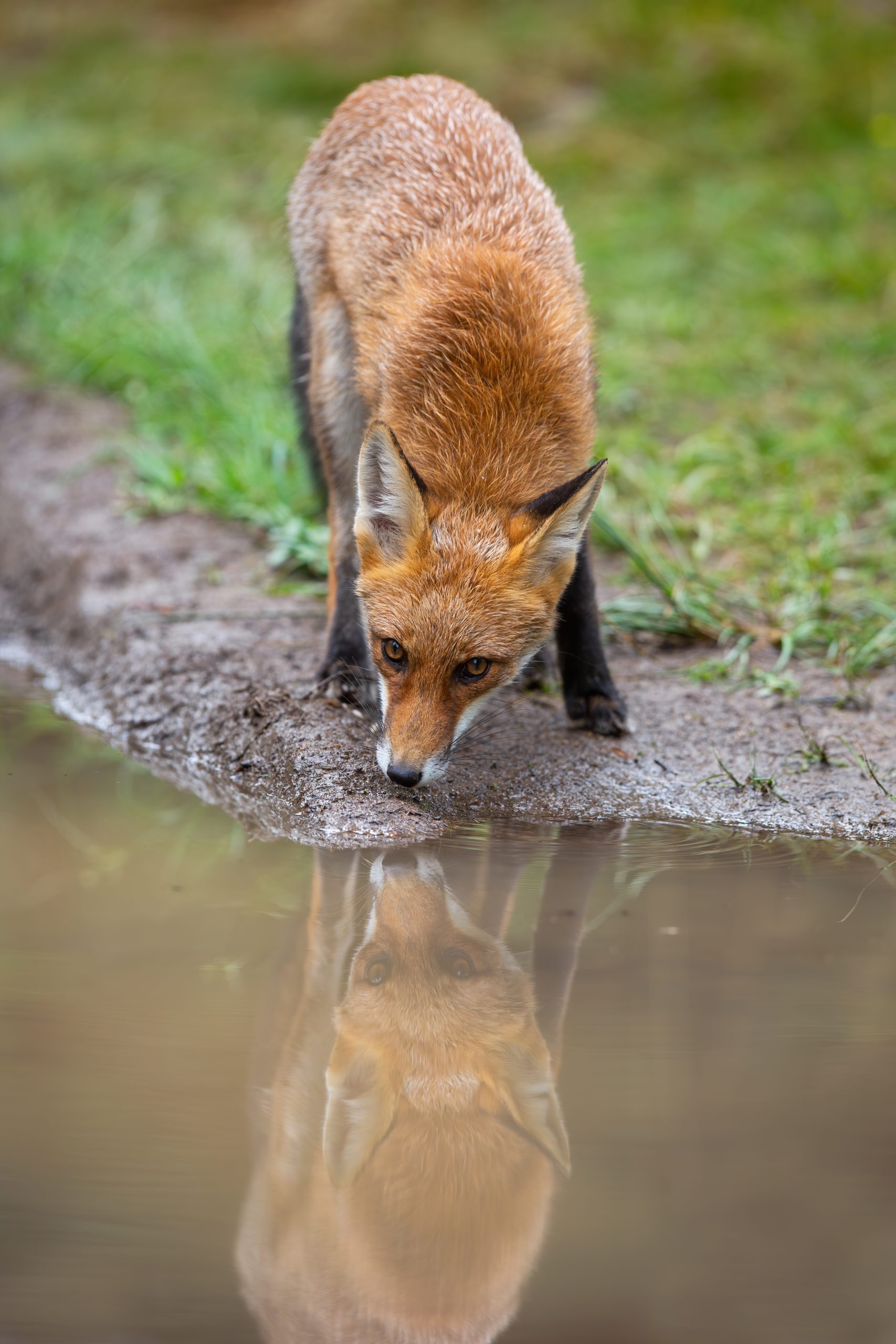Although they are very good swimmers – foxes would rather stay completely dry. But, if there is something good to eat across the water – they will swim for it.
Why Do Foxes Swim?

In an ideal world – a fox would find all the food they needed in one place. They would have a flock of birds close by who couldn’t fly away – and a cozy safe den in the sunshine. But that isn’t always the case of course. They could run out of food – or get chased out of their home by humans or other foxes. Then where do they go – and what do they eat?
This is where being a good swimmer comes in really handy.
Many animals use swimming as a means of crossing to new territory – or a way to reach a new food source. Foxes are often seen swimming onto nature reserves and intertidal islands to catch sleeping waders or eat seabird eggs (a great tasting, highly nutritious, and easy-to-catch delicacy). There are many videos online of Arctic Foxes stealing and caching away dozens of eggs at a time too.
Most animals would be happy to make a small sacrifice to get themselves a free dinner – and foxes are no different. Swimming is a fact of life sometimes – but also – it can save a life.
If foxes find themselves cornered by a larger predator – like a bear – or chased by a pack of dogs or wolves – they can swim to safety if that is an option. They can’t climb trees or scale fences too well – so sometimes their options are limited and they will dive into a stream or lake if they need to.
Are Foxes Good Swimmers?
Once in the water – foxes are very good swimmers – and persistent with it. If they need to get to the other side – they will. Only in really rough waters will they have trouble in the water.
Like all canines, they opt for the steady doggy paddle. Front feet alternate above the water out in front and back feet alternating under the water out behind. It isn’t a record-breaking speed by any means – but it keeps the head above the water. This motion is enough to make decent progress across most calm waterways.
However, holding their head and tail out of the water will always slow them down – so they only reach speeds of 2-3 mph it would seem. They no doubt – where they can – head for the closest bank and try not to get distracted. They want to be in the water as little as possible.
Once on the other side, they have a bit of trouble. They will be heavier with their wet coat and also colder – as water reduces the thermal qualities of their coat. So, they need to get dry as quickly as possible – and may rub themselves on grass or snow to dry off. They are quite vulnerable when wet.
Will Foxes Swim To Catch Ducks?

Many stock-keepers, nature conservation groups, and smallholders have found out to their horror for real how often do foxes swim!
People often fence around stock, property, and nature reserves right up to – and a bit of a way into – the water’s edge to keep out predators. But they forget that this is no deterrent for a hungry fox. They aren’t called ‘sly foxes’ for nothing! Foxes in need of an easy meal won’t hesitate to swim out to a place where they can be sure of a nutritious snack.
There are many conservation projects that spend a large amount of money excluding foxes with extensive fencing. They have learned the hard way that once a fox knows where they can locate a regular source of free eggs – they will keep coming back. Much to the loss of those protected and possibly very rare birds!
They will also take domestic bird eggs – and the birds themselves sometimes. Keeping your ducks on a little island in your lake needs more careful thought in your preparation. Looking at fox-proof raised houses and water-edge fencing are two options – but hungry foxes – especially those with pups – are very resourceful.
Luckily though – they can’t often catch ducks in the water because ducks can take off when spooked of course. But that doesn’t mean they won’t try?











